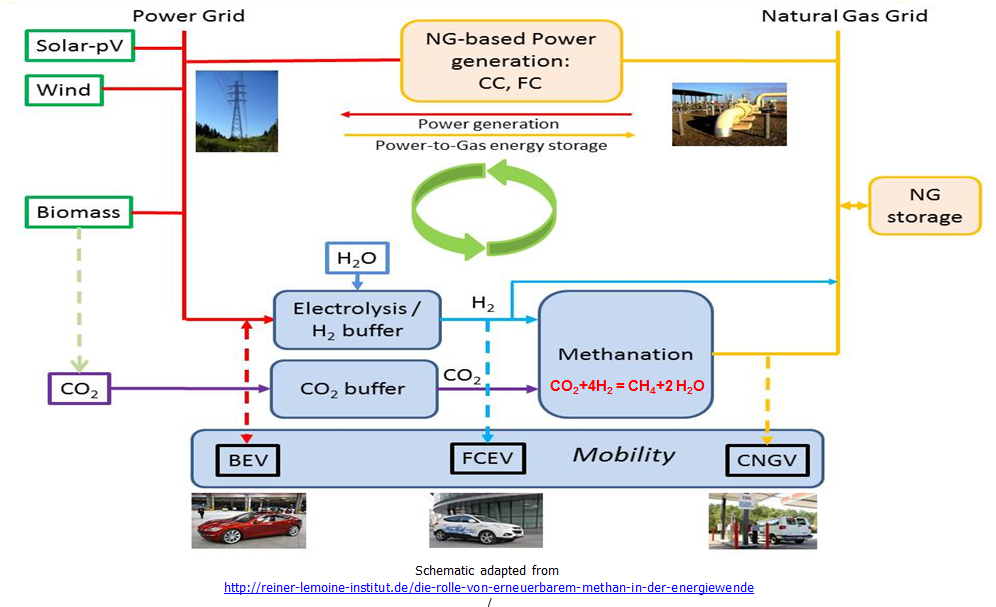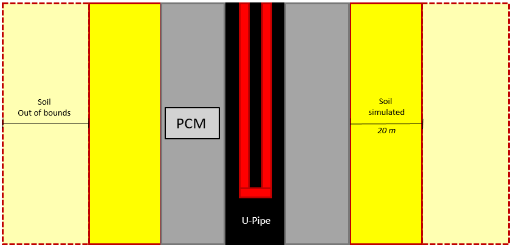Minor#
During my studies, I chose the minor Engineering for Large-scale Energy Conversion and Storage (ELECS) because of my strong interest in sustainable energy and the technical challenges involved in energy transfer and distribution. This minor provided me with a broad and integrated understanding of renewable energy technologies, focusing on wind and solar power, energy conversion, and storage systems. It also equipped me with essential tools for system modeling, performance evaluation, and sustainability assessment. The combination of theoretical knowledge and practical design experience enabled me to develop a systems-level perspective on how to design, simulate, and evaluate large-scale renewable energy conversion and storage solutions that are critical for the transition toward a sustainable energy future.

Fig. 9 Schematic Energy Converison#
⚙️ Energy Conversion: Devices, Systems and Efficiencies – 4 ECTS#
This course introduced the fundamental principles of energy conversion devices and systems. I learned how various types of equipment transform energy from one form to another and how to evaluate these devices based on efficiency and design criteria. Understanding these concepts helped me appreciate the trade-offs involved in selecting suitable technologies to maximize system performance.
🌬️ Fundamentals of Wind Energy I – 3 ECTS#
Here, I explored the offshore wind energy sector, focusing on the development process of offshore wind farms. The course covered site assessment, turbine technology, layout design, and grid integration. It gave me insight into the technical and logistical complexities involved in realizing large-scale wind energy projects.
☀️ Solar Energy – 3 ECTS#
This course focused on photovoltaic technology, explaining the working principles of solar cells as semiconductor devices. I learned about solar cell fabrication, module construction, and the design considerations necessary to build efficient PV systems that convert sunlight directly into electricity.
🔋 Energy Storage – 5 ECTS#
Energy storage is essential for managing the variability of renewable sources. This course introduced mechanical, thermal, and chemical storage technologies, emphasizing large-scale solutions. I gained an understanding of how different storage methods can support grid stability, energy balancing, and higher penetration of intermittent renewables.
📊 Assessment of Energy Systems – 3 ECTS#
In this course, I learned systematic approaches to evaluate energy systems. Exergy analysis provided a way to quantify the quality and efficiency of energy conversions, while life cycle assessment (LCA) enabled evaluation of environmental impacts over a system’s entire lifespan. These tools helped me critically assess the sustainability of energy technologies.
🎓 Design Project: Renewables based Energy Conversion and Storage – 12 ECTS (3 + 9)#
During the design project, I gained practical experience in developing and applying advanced numerical modeling techniques to simulate complex thermal energy storage systems. By integrating phase-change materials into borehole thermal energy storage (BTES) models, I learned how to analyze and enhance the thermal performance and efficiency of renewable energy storage solutions. The project deepened my understanding of the thermal dynamics involved in large-scale energy storage and highlighted the importance of material selection and system design optimization. Working with Python to implement and run simulations strengthened my skills in programming, data analysis, and interpreting results in the context of sustainable energy technologies. Overall, this project enhanced my ability to tackle real-world engineering challenges by combining theory, computation, and practical design considerations.

Fig. 10 BTES system modelled in Python#
